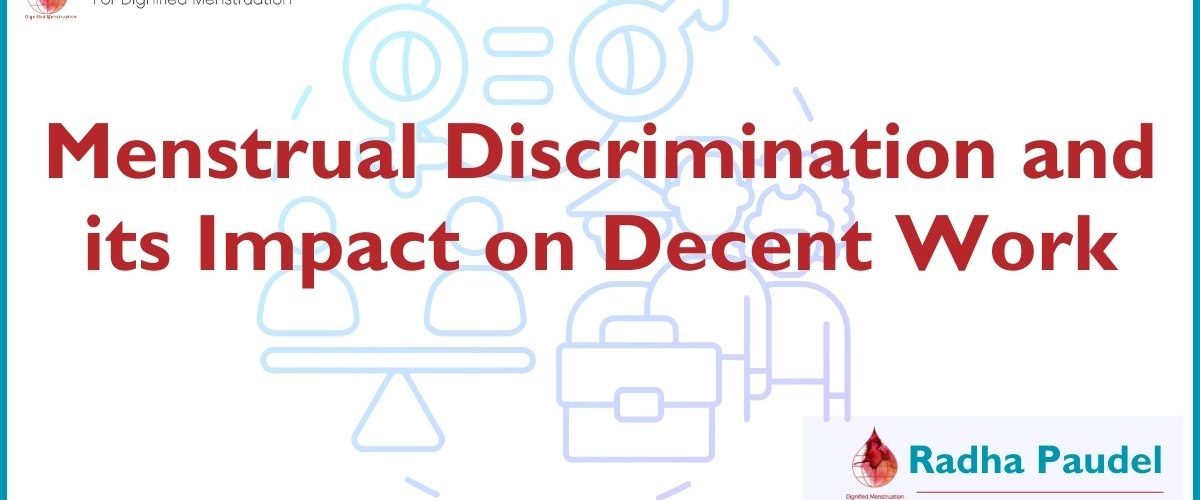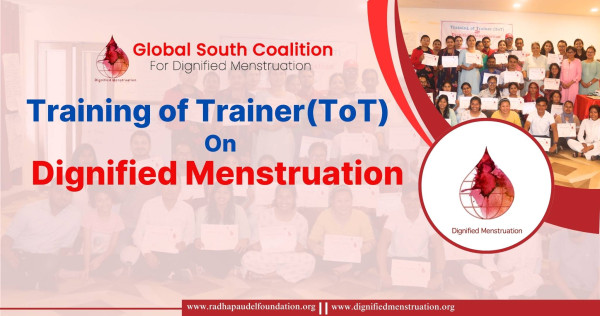Resources

Menstrual Discrimination and its Impact on Decent Work
Menstrual Discrimination throughout a Lifetime There is no doubt that half of this planet is occupied by menstruators (girls, women, transmen and queer). Menstruation is a biological process that exists to ensure the survival of our species. Since ancient times, menstruation has been considered a mysterious matter and has received low levels of public attention, even in the era of science and technology. Menstruation occurs in women born with ovaries and a uterus for the first time at an average age of 12 years old and occurs monthly until it ends at an average of 51 years old. When menstruation comes into the discussion, menopause must also have equal space – because menstruation and menopause are two sides of the same coin. The topic of menstruation is usually raised in the context of reproductive health or women’s health, childbirth, family planning, and contraception. Little mention is made of the long-standing, widespread discrimination against menstruators. This is a topic yet to be included in the curriculum of schools, colleges and universities including medical, nursing and public health courses in many countries including the UK (Kemp, 2021). Historically, consideration of menstruation either as a dark magical power or a dirty or impure condition has been perpetrated throughout centuries. Menstruation is surrounded with various forms of myths and rumors that have been responsible for family and community practices that are mostly discriminatory against the menstruator. The Global South Coalition for Dignified Menstruation (GSCDM) defined menstrual discrimination as the state of taboo, shyness (shame), stigma, restrictions, abuses, violence, deprivation from services and resources associated with menstruation throughout the life cycle of menstruators (Paudel, 2020). In close alignment, irrespective of sex, class, caste, religion, region, education etc., menstrual discrimination has been practiced across the globe under different names, forms and severity. In the 21st century, the historic taboos created by ignorance still shroud in silence the abuses, restrictions or deprivations against menstruators that continue in many examples of menstrual discrimination (Paudel, 2020). For instance, in Canada, 63% of girls reportedly felt that they had to hide their menstrual products while buying them or using them in washrooms (Paudel, 2020). Likewise, 78 % of girls stop playing with other children after the onset of menstruation in the UK (Weaver, 2022).

![7th International Dignified Menstruation Day 2025: Learning Conference [CONCEPT NOTE]](https://www.dignifiedmenstruation.org/uploads/posts/600X500/DMConference2025-WebsitePopUp-(1)-1742278218.png)
![Dignified Menstruation in School Curriculum [ENGLISH]](https://www.dignifiedmenstruation.org/uploads/posts/600X500/Screenshot-2025-03-14-134702-1741939395.png)

![Dignified Menstruation in School Curriculum [Nepali]](https://www.dignifiedmenstruation.org/uploads/posts/600X500/Screenshot-2025-01-28-120136-1738045018.png)